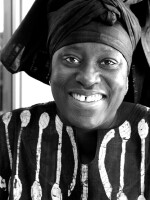ANDREA SEABROOK, host:
This is WEEKEND EDITION from NPR News. I'm Andrea Seabrook.
There are dire warnings of a three-way regional war brewing in Central Africa engulfing Sudan, Chad and the Central African Republic. The catalyst is the conflict in Sudan's volatile Darfur region, with a violence spillover into the neighboring countries, especially Chad.
NPR's Ofeibea Quist-Arcton is in the Chadian capital, N'Djamena.
Ofeibea, from Chad's point of view, what is the problem?
OFEIBEA QUIST-ARCTON: Chad has many problems at the moment. The immediate one is rebels, rebellions from at least three rebel groups trying to overthrow the Chadian president, Idriss Deby. It also has a displaced persons problem, which is a spillover from the war across the border in Darfur, tens of thousands of Chadians who have been chased by Janjiweed militiamen from their border villages further east into Chad, and that's to add to the problem of 200,000-plus Darfur refugees who are already across the border.
So these are some of the problems that Chad is facing. It blames neighboring Sudan for backing the Chadian rebels. Sudan says Chad is responsible for backing Darfur rebels. So these are some of the accusations and counter-accusations and denials that we're getting from both sides.
SEABROOK: What is Sudan's role in this conflict?
QUIST-ARCTON: A huge one. The Darfur conflict started about three and a half years ago, because those living in that western part of Sudan said they were totally marginalized by the predominately Arab government in Khartoum, the capital. So they took up arms against the government. The government responded, although it denies it, by backing Janjiweed Arab militiamen mainly against African Sudanese who have been displaced, two and a half million of them.
We're told 200,000 people killed, and these are women raped, men, children, villages razed to the ground, and Sudanese refugees driven across the border into Chad. There's an African Union Force in Sudan, in Darfur, at the moment, but it's totally unable to halt the violence or to protect either refugees, displaced people, all the humanitarian workers trying to help. But Sudan has defiantly refused to have a U.N. Peacekeeping Force replace the Africans.
SEABROOK: What about the other border neighboring Central African Republic? What's happening there?
QUIST-ARCTON: Well, the U.N. humanitarian chief says you have all these rebels operating in Darfur and in Chad, and then when they want to disappear what they do is cross the border into the neighboring Central African Republic. So, we have three countries - Sudan, Chad and Central African Republic - each with its own rebellions trying to oust the respective governments, and then all three blaming either Sudan or Chad of helping its rebels. At the moment, Chad and the Central African Republic are allied. They say Sudan is responsible for this growing conflict in the region.
And of course in all this it's civilians who are the targets and civilians who are the victims of an explosion of violence which goes back years, dating back years to a fight over land and water, but now made even more explosive by modern politics and especially weapons. This is a region awash with weapons, with arms of all sorts, and petroleum, oil, produced over the last four years in Chad and of course over the border in Sudan. So there's all this talk about expansionist, Islamist, and greedy interests and aspirations.
SEABROOK: NPR's Ofeibea Quist-Arcton in the Chadian capital of N'Djamena. Ofeibea, thank you very much.
QUIST-ARCTON: Pleasure. Transcript provided by NPR, Copyright NPR.







